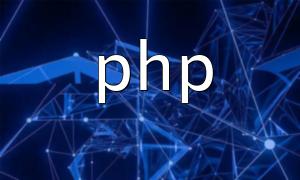gRPC is a high-performance, open-source remote procedure call (RPC) framework that simplifies communication between services over a network. By analyzing the gRPC source code, we can better understand how it works and learn how to implement efficient RPC communication in PHP. This article focuses on the underlying mechanisms, source structure, and implementation in PHP.
The PHP gRPC source code is hosted on GitHub and contains service definitions, server implementations, client calls, and core communication logic.
gRPC services are defined in .proto files using the Protocol Buffers language. These files describe request and response messages, service methods, and options.
For example, a simple Echo service can be defined as follows:
syntax = "proto3";
service EchoService {
rpc Echo(EchoRequest) returns (EchoResponse);
}
message EchoRequest {
string message = 1;
}
message EchoResponse {
string message = 1;
}Implementing a gRPC service in PHP involves creating a service class and registering methods. The class must implement the GrpcServer interface, and methods should be annotated with the GrpcMethod attribute.
use GrpcServer;
use GrpcMethod;
class EchoServiceImpl extends Server
{
public function __construct()
{
$this->addMethod(new Method(
"/EchoService/Echo",
GrpcUnaryCall::class,
[$this, "echo"]
));
}
public function echo(GrpcServerCall $call, GrpcEchoRequest $request): GrpcEchoResponse
{
return new GrpcEchoResponse([
"message" => $request->getMessage()
]);
}
}Using a gRPC client is simple. You create a client object and call the service method:
use GrpcClient;
use GrpcEchoRequest;
$client = new Client("localhost:50051", [
"credentials" => GrpcChannelCredentials::createInsecure()
]);
$request = new EchoRequest([
"message" => "Hello World!"
]);
$response = $client->Echo($request);
echo $response->getMessage();gRPC uses HTTP/2 as its transport protocol. HTTP/2 is a binary protocol that supports header framing, multiplexing, and server push, significantly improving communication efficiency and concurrency.
gRPC uses Protocol Buffers as the message serialization format. It efficiently serializes complex data structures into compact binary form, supports cross-language usage, and provides automatic code generation.
gRPC supports streaming, allowing clients and servers to send and receive multiple messages in a single RPC call. Streaming is suitable for real-time or bidirectional communication scenarios.
gRPC provides built-in authentication and authorization mechanisms. You can use TLS, JWT, or other credentials to secure your services.
gRPC offers multiple performance optimization techniques, including connection pooling, load balancing, caching, and compression. Using these strategies can significantly improve service throughput and response times.
By analyzing PHP gRPC source code, we gain a comprehensive understanding of its core principles. Combining HTTP/2, Protocol Buffers, and streaming capabilities, gRPC provides PHP developers with a high-performance, low-latency RPC solution.









